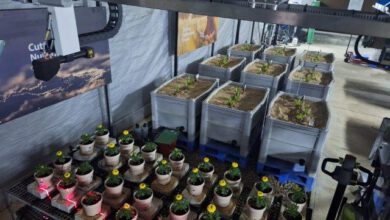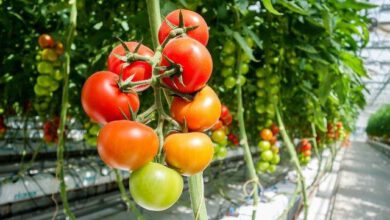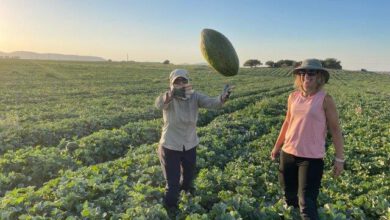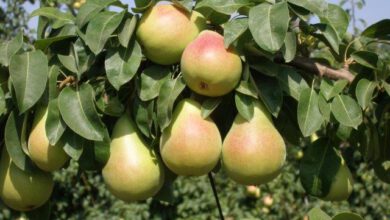Protecting Israel’s environment from Invasive Species
Intrusive plants that have come to Israel pose one of the greatest threats to native flora
Zafrir Rinat
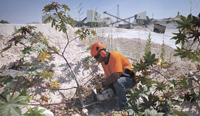
.jpg)
Workers at the Nahshonim Quarry, the second largest in Israel, have in recent weeks noticed a new man around their workplace. His name is Tzvi Yehoshua Sassi, and he describes himself as a “pruning contractor” who clears invasive species.
He was hired by Hanson, the company that owns the quarry, to deal with invasive plants that are thriving there and threatening to spread.
Invasive species of plants that have come to Israel from different countries pose one of the greatest threats to native flora, through competition for natural resources.
Naturally, seeds of invasive species are disseminated around the country in all sorts of ways. But normally, the dissemination of an “alien seed” would be immediately adjacent to where the parent took root. It turns out that trucks ferrying aggregate from quarries where alien plants are thrving, are inadvertently guilty of spreading the seeds far and wide, as Oded Cohen, a consultant to the Society for the Protection of Nature in Israel, Dr. Oded Cohen, recently discovered.
While natural dispersal might be stymied by, say, a road, a truck could take a seed while transporting building materials from one end of the country to another.
Trucks carrying construction materials like gravel in which seeds of these plants have been mixed end up releasing the seeds when they unload at different sites, which help the invasive plants spread.
There are no regulations governing the containment of invasive plants. The SPNI contacted Hanson and asked it to act on its own initiative to prevent their spread, as part of its declared commitment to environmental protection.
Company executives were hard to convince. But the environmental group did not give up, however, and contacted the headquarters of Heidelberg Cement, the German company that acquired Hanson several years ago. They were well aware of the problem and sent a specialist in this field, Dr. Michael Rademacher, to Israel. He was able to convince Hanson’s executives to work to contain the problem.
“For the past month and a half we have been treating the invasive species, especially near the points in the quarry where the building materials are sold,” said Avner Weiss of Hanson. “This treatment is performed in all three quarries we operate.”
“I rather enjoyed the trees, because they added some green around here,” said Effie Kotro, the Nahshonim Quarry manager. “But then I understood the damage they can cause.”
The pruning contractor goes systematically through the quarry with a chainsaw and saws through trunks of the invasive trees. He is assisted by another worker who sprays pesticides on the stumps to prevent their further development. This is a treatment that will have to be carried out for a lengthy period, because there are also invasive trees outside the quarry whose seeds blow into the quarry, creating a new generation that will also need to be combated. Alon Rothschild of the SPNI says the state ought to issue regulations that would require the systematic treatment of invasive species wherever experts believe it is required.

